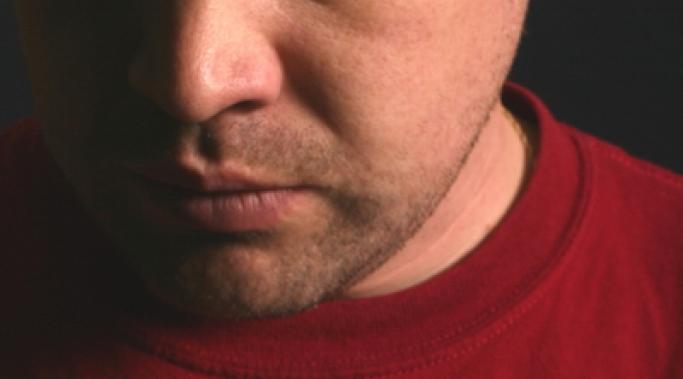Living with dissociative identity disorder (DID) can be a perplexing reality. There are many symptoms, including depersonalization and derealization. One symptom involves “losing time” or “blacking out” for periods of time. This happens with no drugs or alcohol in the system. It is scary to realize that you've lost time, and sometimes the person may not realize it at all.
DID Symptoms
Dissociation is a common phenomenon. Most people will experience dissociation at some point in their lives. It becomes a disorder, like in dissociative identity disorder (DID), when it is so frequent or severe that it interrupts a person's daily life. One common technique used for dissociation is called grounding. It is a technique that helps a person regain connection with his or her physical body. This may often end the dissociation, or will at least make it more bearable.
I am crazy. I am a fraud. I wanted to understand dissociative identity disorder (DID) because I wanted to understand myself. I didn't like it, though, all this multiple personalities crap that made me feel out of control. So I changed it. I made DID okay. Hard, but okay.
The terms repressed memory and recovered memory gained popularity in the mid-1980's along with the multiple personality disorder diagnosis. As a result, these terms are still strongly associated with dissociative identity disorder (DID) (the replacement label for MPD in the United States since 1994). They're also strongly associated with unethical therapeutic practices, false memories of abuse, and lives destroyed by both. And while those associations have merit, repressed and recovered memories aren’t generally as dramatic and rare as their inflammatory connotations suggest.
Over the past couple of months I’ve published a series of articles focused on normalizing dissociation. I've said repeatedly that I believe just about everyone can achieve a basic understanding of Dissociative Identity Disorder, provided it’s explained to them in a way they can relate to. But that doesn’t mean I think everyone should. In fact, normalizing dissociation isn’t about making other people understand DID. It’s about freeing ourselves from the need for other people to understand it.
The two dissociative symptoms that, once described clearly, are the easiest for people to relate to and understand are also the ones that have earned Dissociative Identity Disorder its undeserved reputation as a bizarre aberration. Identity alteration (experiencing the self as multiple) and dissociative amnesia (gaps in memory) are the two manifestations of dissociation that are mythologized the most. But it’s not because they’re too foreign for most people to grasp. On the contrary, in their mildest forms they’re downright normal.
One of the things that makes Dissociative Identity Disorder so difficult to recognize is that, contrary to popular belief, DID symptoms are not the stuff of science fiction. They are, in fact, severe amplifications of normal human experiences. I can think of nothing more normal, nothing more intrinsically human than identity confusion. Of the five primary manifestations of dissociation, I believe identity confusion is easily the most common. But it's also the one few people will acknowledge in any meaningful way. People are pretty dedicated to the idea that we should know who we are without question, and we fervently admire those who appear most convincingly to do exactly that. But despite appearances, no one gets to live a human life without struggling with their sense of self.
On Friday I went to the pharmacy to pick up some medication. It was a long wait, and I wasn’t feeling well. Around me I heard people talking, phones ringing, and the various noises of the grocery store that houses the pharmacy. The sounds seemed to come from a distance, and I felt profoundly disconnected from everyone and everything around me, as if I was an observer in a dream that wasn’t mine. It wasn’t a particularly comfortable experience but it certainly wasn’t an unusual one. I have Dissociative Identity Disorder, and I've lived with chronic, severe dissociation nearly all my life. The episode I described illustrates the combined forces of depersonalization and derealization, two forms of dissociation that often appear together. And despite the fact that I have DID and my dissociative experiences, taken as a whole, are decidedly abnormal, dissociation itself is something just about everyone experiences from time to time.
Depersonalization is a way of experiencing the self. It's a form of dissociation that manifests in a variety of ways that all boil down to a sense of detachment or separateness from one's self. And though depersonalization is a chronic part of living with Dissociative Identity Disorder, it isn't something only those of us with DID experience. For most people, episodes of depersonalization are transient, infrequent, and typically occur during periods of high stress.
I've been trying for four days now to finish an article on depersonalization, one of five primary ways dissociation manifests. I wanted to address the milder episodes of depersonalization most people experience at one time or another. But I have Dissociative Identity Disorder, and severe depersonalization is part of living with DID. Ironically enough, it's depersonalization itself - specifically, mental clouding - that's preventing me from finishing that article. I've finally decided that if I'm going to continue to try to write in a highly depersonalized state, it makes sense to stop fighting it and simply do my best to describe what I'm experiencing. The article I intended to publish today will have to wait until I can think clearly again.








